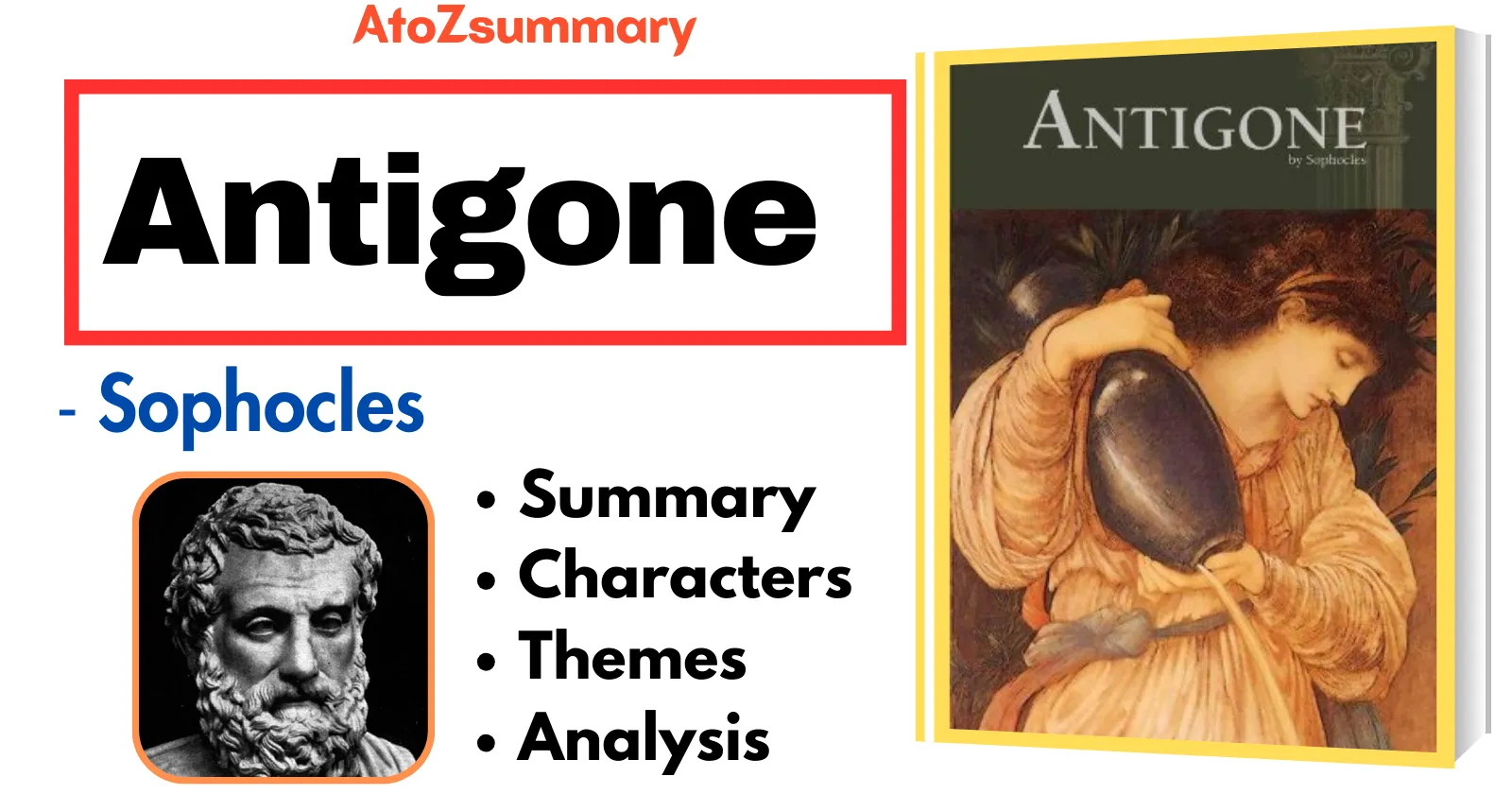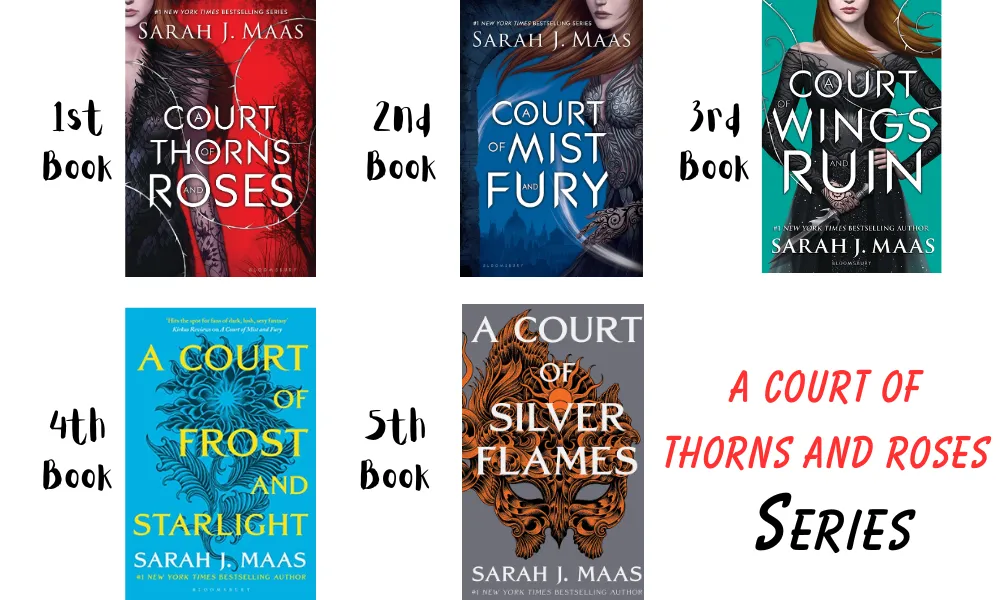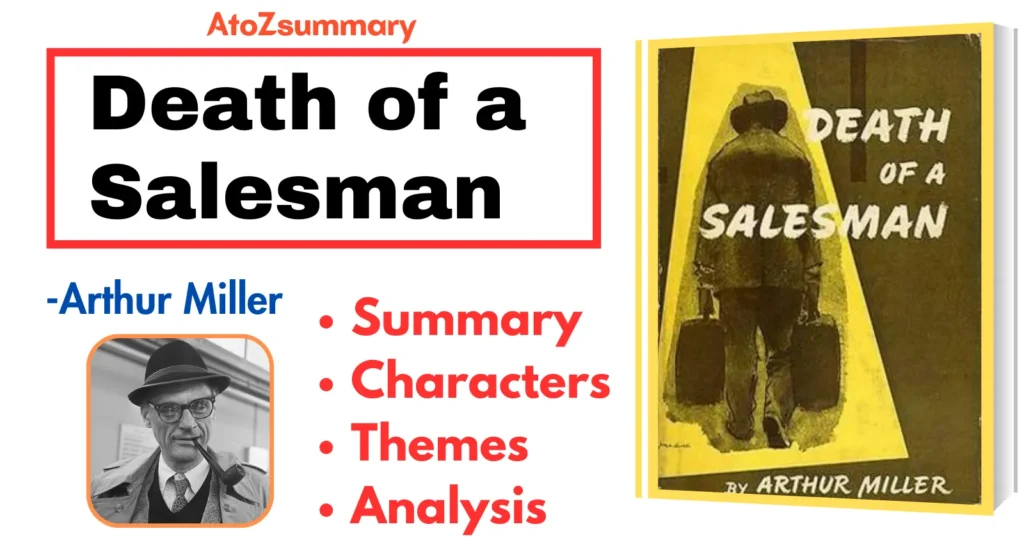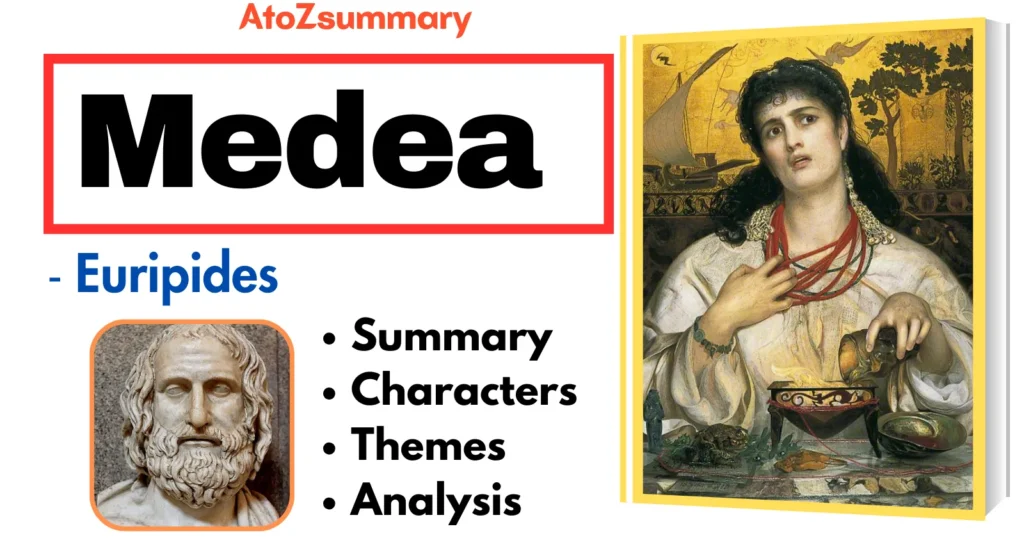About the Play: Antigone
| Title | Antigone |
|---|---|
| Playwright | Sophocles |
| Genre | Tragedy |
| Setting | Thebes, Greece |
| Time Period | Archaic Greece (5th century BCE) |
| Major Conflicts | Antigone’s defiance of Creon’s decree, Creon’s clash with Haemon and Tiresias, The tragic consequences of Creon’s actions |
| Critical Reception | Considered one of the greatest tragedies ever written |
| Adaptations | 1949 film adaptation starring Jean Cocteau, 2007 opera by Krzysztof Penderecki |
| Significance | Explores the timeless struggle between individual morality and societal authority |
Analysis: Antigone
“Antigone” by Sophocles is a Greek tragedy that revolves around the conflict between familial duty and the laws of the state. The main character, Antigone, defies the king’s decree and buries her brother, Polynices, who died in a civil war. King Creon, Antigone’s uncle, orders Polynices’ body to remain unburied as punishment. Antigone chooses loyalty to her family and the divine laws over obeying the king.
The conflict between individual conscience and state authority remains a timeless and thought-provoking aspect of the play. “Antigone” raises questions about the balance between personal ethics and obedience to political power, making it a classic in the realm of Greek tragedies.
Characters: Antigone
The characters of “Antigone” by Sophocles are:
- Antigone: The main character and protagonist. She is determined to bury her brother Polynices against the king’s decree.
- Creon: The king of Thebes and Antigone’s uncle. He issues the decree against the burial of Polynices and represents the authority of the state.
- Ismene: Antigone’s sister. Unlike Antigone, she is hesitant to defy the king’s orders.
- Haemon: Creon’s son and Antigone’s fiancé. He tries to mediate between his father and Antigone.
- Eurydice: Creon’s wife and Haemon’s mother. She has a small but crucial role in the unfolding tragedy.
- Teiresias: A blind prophet who warns Creon about the consequences of his actions.
- Chorus: A group of Theban citizens who provide commentary on the events and express the views of the community.
Themes: Antigone
The themes of “Antigone” by Sophocles are:
- Conflict Between State Law and Moral Duty: Antigone grapples with the dilemma of obeying the laws of the state or following her moral duty to bury her brother.
- Individual vs. State: The play explores the tension between the rights of the individual (Antigone) and the authority of the state (represented by King Creon).
- Hubris and Pride: Creon’s excessive pride and stubbornness lead to tragic consequences for himself and those around him.
- Fate and Free Will: Characters in the play struggle with the idea of fate and whether their actions are predetermined or a result of their own choices.
- The Power of Women: Antigone challenges traditional gender roles, showcasing the strength and determination of women in the face of oppressive societal norms.
- Civil Disobedience: Antigone’s act of burying her brother in defiance of the king’s orders raises questions about the moral justification of civil disobedience.
- The Tragic Hero: Both Antigone and Creon exhibit qualities of a tragic hero, facing a downfall as a result of their own flaws and decisions.
Watch Full Video Summary of “Antigone”
Antigone Summary
Act 1:
The story begins in the aftermath of a brutal battle in Thebes. Antigone, the daughter of Oedipus, finds herself torn between loyalty to her family and obedience to the state. The new ruler of Thebes, King Creon, has declared that the body of Polynices, Antigone’s brother, is not to be buried but left to rot on the battlefield as a punishment for treason.
Antigone, driven by a deep sense of duty to her family and the gods, defies Creon’s decree and buries her brother’s body. She believes in the importance of honoring the dead and fulfilling her moral obligations, even if it means going against the law of the land.
As the news of the burial spreads, the chorus, a group of Theban elders, expresses both sympathy for Antigone’s actions and fear of the consequences that may follow. Creon, a stern and authoritative ruler, learns of the disobedience and is determined to enforce his law, setting the stage for a tragic confrontation.
Act 2:
Creon, enraged by Antigone’s defiance, confronts her. The dialogue between Creon and Antigone reveals the central conflict of the play – the clash between divine law and human law. Antigone argues that she is following the higher law of the gods, which demands proper burial for the dead, while Creon insists on the supremacy of the state’s authority.
Creon’s stubbornness and pride become apparent as he refuses to show any leniency towards Antigone, even when his son Haemon, who is engaged to Antigone, attempts to reason with him. Haemon, torn between his loyalty to his father and his love for Antigone, pleads for a more compassionate stance.
The tension escalates as Haemon and Creon engage in a heated argument, each defending their principles. Haemon warns his father of the consequences of his rigid rule, predicting that the people will turn against him if he persists in his harsh judgment.
Act 3:
The final act of the play unfolds with tragic inevitability. Despite Haemon’s efforts to convince his father, Creon remains unmoved. Antigone is sentenced to be entombed alive, a fate she accepts with stoic resolve. As she is led away, the chorus reflects on the power of fate and the tragic consequences of human pride.
The seer Teiresias, a respected figure in Thebes, arrives to warn Creon about the impending divine retribution for his actions. He prophesies that Creon’s refusal to bury Polynices and mistreatment of Antigone will bring doom upon the city.
Faced with the ominous prophecy, Creon begins to reconsider his decision. However, it is too late. Haemon, devastated by the news of Antigone’s fate, takes his own life. Eurydice, Creon’s wife, upon learning of her son’s death, also succumbs to despair and ends her life.
The play concludes with Creon, a broken man, acknowledging the tragic consequences of his pride and stubbornness. The once-mighty ruler is left to grapple with the devastation he has brought upon his family and city.
FAQs
What is Antigone mainly about?
Antigone is a tragedy that explores the conflict between personal morality and the laws of the state, the nature of justice, the role of fate in human life, and the danger of excessive pride.
What is the moral message of Antigone?
Antigone teaches us that it is important to follow one’s conscience, even when it means defying authority.
Why did Antigone bury her brother?
Antigone buried her brother, Polynices, to fulfill her religious duty and honor her family’s name, despite King Creon’s decree that he should remain unburied.
Was Antigone in love with her brother?
Antigone’s love for her brother Polynices is complex and deeply rooted in familial bonds, transcending conventional notions of romantic love.
What does Antigone symbolize in Antigone?
Antigone symbolizes defiance against unjust authority and unwavering loyalty to family and divine law.
What are 5 key moments in Antigone?
The 5 key moments in Antigone are:
1. Antigone’s decision to bury her brother Polynices,
2. Creon’s condemnation of Antigone to death,
3. Tiresias’ warning to Creon,
4. Antigone’s suicide, and
5. Creon’s tragic realization of his mistakes.
Why is Antigone a tragic story?
Antigone’s unwavering loyalty to her family and her defiance of an unjust law lead to her tragic downfall.
What happens at end of Antigone?
Antigone dies by suicide, and her fiancé, Haemon, also kills himself in grief, leading to the death of Haemon’s mother, Eurydice, too.
Why is the story of Antigone important?
The story of Antigone is important because it explores timeless themes of conflict between law and morality, individual conscience versus societal authority, and the power of human spirit in the face of oppression.








![Little Women Summary,Themes,Characters & Synopsis [Louisa May Alcott] Little Women Summary,Themes,Characters & Synopsis [Louisa May Alcott]](https://atozsummary.com/wp-content/uploads/2023/08/Little-Women-SummaryThemesCharacters-Synopsis-Louisa-May-Alcott-1024x538.webp)


